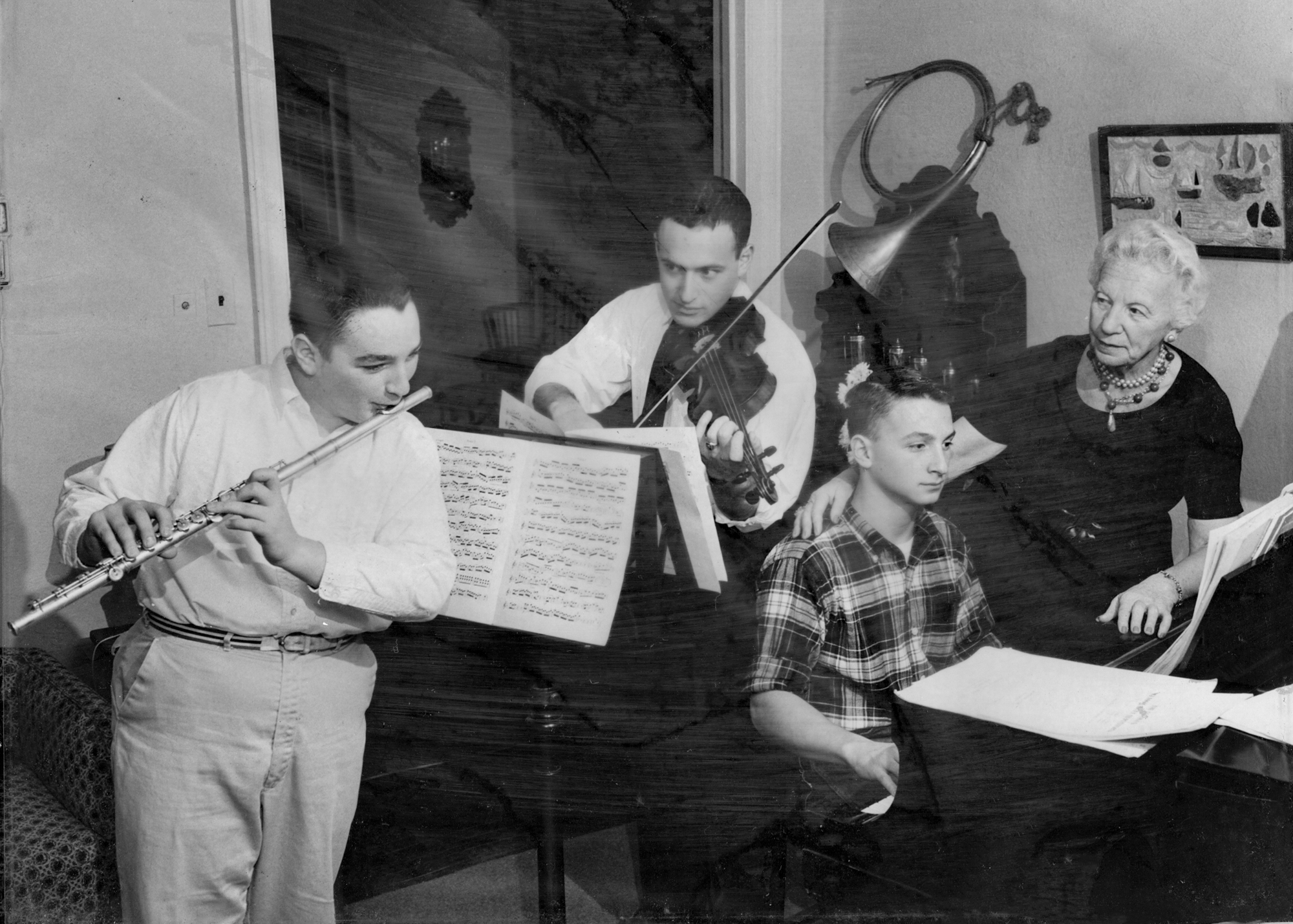By Skylar Drew
For The Diamondback
The Nightingale’s Sonata, a memoir about famous violinist Lea Luboshutz, was featured in The Clarice Smith Performing Arts Center’s Masterful Strings series Monday. The memoir details Luboshutz and her family’s journey from Russia across Europe and eventually to America, highlighting the importance of music as the violinist navigated an environment of political tensions and prejudice.
Author Thomas Wolf, Luboshutz’s grandson, read passages from the book accompanied by Spanish pianist Daniel del Pino and violinist and professor at the University of Maryland Irina Muresanu.
The 2022-2023 season is the first since the initial COVID-19 outbreak that feels “somewhat normal,” according to Muresanu, who curates the Masterful Strings series alongside professor and cellist Eric Kutz.
“These are hand-picked guest artists that are really the top performers and pedagogues in the United States,” Muresanu said.
The show consisted of César Franck’s “Sonata for Violin and Piano,” a work well-known to Luboshutz, who was one of first internationally renowned female violinists. The four-part piece was broken up by excerpts from the book read aloud by Wolf.
[UMD Esports program has moved past its growing pains and continues to expand]
Wolf began the show by setting the scene of his grandmother’s early life in Odessa, then part of the Russian Empire. Luboshutz and her two siblings became celebrated musicians at a young age, which would later parallel Wolf and his brother who followed in the musical footsteps of their grandmother.
The three siblings, known in Russia as the “Luboshutz Trio,” were separated when Luboshutz emigrated to Germany in 1921, where she and her 13-year-old son set out to tour. During this time, Luboshutz left behind two children in the Soviet Union, one being Wolf’s mother.
In 1924, Luboshutz began touring internationally with a director from the Curtis Institute of Music in Philadelphia, who later invited her to join the violin department. Luboshutz’s achievements ranged from performing sold-out nights at Carnegie Hall to receiving an honorary doctorate from the Curtis Institute in 1953.
Before the fourth and final part of Franck’s sonata, Wolf told the story of his brother and pianist Andrew Wolf. The author recalled both himself and his brother being volunteered to become their grandmother’s musical legacies from a young age. Like his grandmother, Andrew Wolf became a successful world renowned musician, even visiting the White House in 1984 to perform.
[Film festival brings movies from across the globe to UMD community]
A brain tumor led to Andrew Wolf’s death in 1985. His last public performance was the very same sonata by César Franck, a triumph that dated back a century to its creation in 1886.
After the final part of the piece concluded, the Gildenhorn Recital Hall audience applauded the author and performers with a standing ovation.
For Gopika Chudasama, a sophomore information science major, attending the show was a brand new experience.
“I will definitely be coming back for more,” Chudasama said. “It was really well-organized and really enjoyable.”
Junior finance major Trevor Bentzley found the story of Luboshutz and the musical performances to be passionate and engaging.
“The story was invigorating,” Bentzley said. “Overall the performance was wonderful.”



